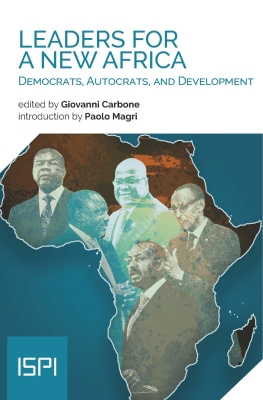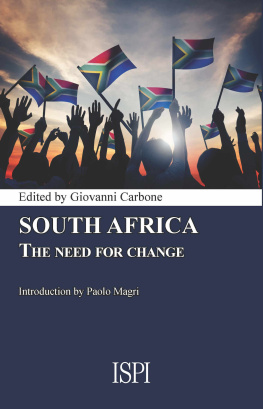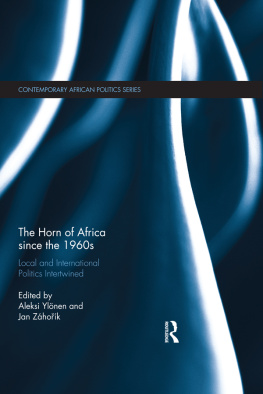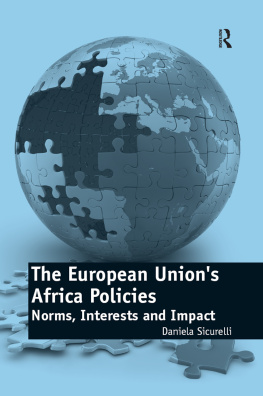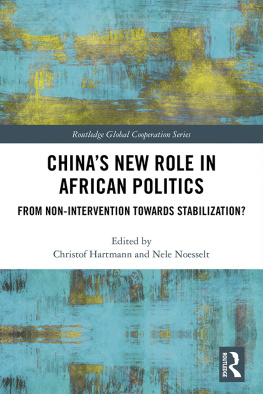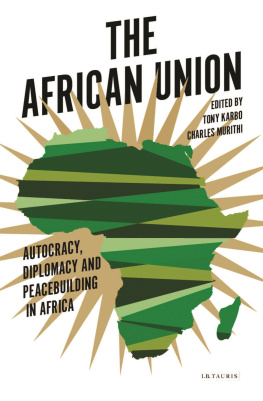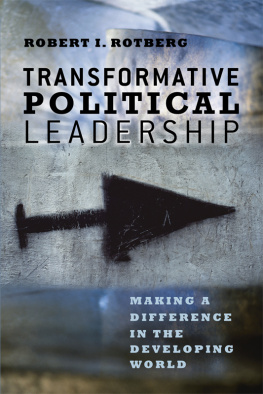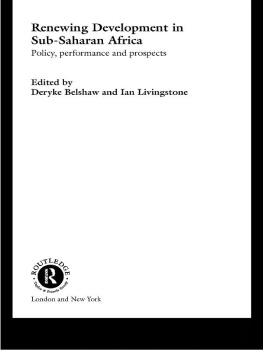2019 Ledizioni LediPublishing
Via Alamanni, 11 20141 Milano Italy
www.ledizioni.it
Leaders for a New Africa. Democrats, Autocrats,
and Development
Edited by Giovanni Carbone
First edition: October 2019
The opinions expressed herein are strictly personal and do not necessarily reflect the position of ISPI.
Print ISBN 9788855260633
ePub ISBN 9788855260862
Pdf ISBN 9788855260879
DOI 10.14672/55260633
ISPI. Via Clerici, 5
20121, Milan
www.ispionline.it
Catalogue and reprints information: www.ledizioni.it
Introduction
The wind of change keeps blowing south of the Sahara. With an estimated population of 1.2 billion people, expected to keep growing steadily in the next decades and largely below the age of 15, Africa is the continent of an ever-closer future. It is true that many sub-regions are still riven by conflicts and political violence. This is the case of western Sahel and the Lake Chad Basin, where insurgent and jihadi armed groups activities increase community vulnerabilities and fuel inter-ethnic tensions. Or of the Great Lakes region, made unstable by militias interested in profiting from natural resources. Yet, social, political and economic transformations are changing the face of Africa. Todays enormous challenges are addressed by regional and continental integration as in the case of the African Continental Free Trade Area (AfCFTA), which brings together all African countries Eritrea is the only exception with the aim of reducing the structural fragilities of the national economies and increasing the capacity to speak with one voice.
Against this backdrop, the rise of new leaders promises to accelerate and steer change in the continents political scenario. All too easily associated with authoritarian and long-lasting regimes, Africa has seen a gradual strengthening of democratic processes albeit still fragile and far from problem-free as shown recently by elections in Nigeria and Mauritania. The opening of wider and more relevant spaces for political participation and electoral turnovers contribute to dismantle the foundations of a widespread discourse describing Africa as a continent continuously going backwards on democracy. Grassroots pressures that triggered the collapse of Omar al-Bashirs regime in Sudan and the launch of a political transition based on a power-sharing deal between military actors and civil society organisations speak volumes about the continents efforts to open up politics and reduce the room for personalistic and autocratic rule. While the road ahead remains a long one, substantial progress has been made.
This ISPI Report builds on these premises and focuses on leadership transitions and development prospects in Africa. The rise of new leaders, coming to power within a few months of each other in some of the most strategically relevant states in the continent, fosters expectations for a change in contexts of deep economic, political and social crisis. It also provides the opportunity to analyse the linkage between political leaderships and socio-economic development.
The volume looks at these issues from different angles. First, it addresses the topic of leadership change by arguing that African leaders and particularly the way they reach power do contribute to shaping their countrys progress and achievements. Second, it zooms in on some of the most influential African leaders, following their personal trajectories and the path that brought them to power while reflecting on the political prospects of their government action. The picture that comes out tells of an Africa where leaders more often than not contribute to fostering broad changes.
In the opening chapter Giovanni Carbone provides a general overview of the leadership-development nexus. He investigates the historical evolution of political regimes and African leaderships looking back to the post-independence authoritarian turns in the 60s and the widespread changes that occurred in the continent during the 90s. The chapter shows how the decline of one-party military rule coincided with the launch of democratic processes, although in many cases the latter were abruptly hindered due to further autocratic regress. The distinction between democracies, authoritarian states and hegemonic systems that defines the current African political scenario provides an essential lens to interpret Africas steps towards electoral turnovers and democratic leadership changes. Mentioned in the chapter, ISPI African Leadership Change dataset including all power handovers since 1960 to 2018 is an innovative tool to account for the way in which leaders take office and to examine their impact on development.
The following chapters cover particular case studies of emerging (in South Africa, Angola, Ethiopia, and Democratic Republic of the Congo) and consolidated leaderships (in Rwanda), outlining the political and development challenges lying ahead for African leaders. Jonathan Fisher looks at the most prominent and iconic among the new power-holders: Abiy Ahmed Ali, who was recently awarded the Nobel Peace Prize. The author traces Abiys surprising rise in Ethiopia, describing his ambitious reform plans in a political system closed in on itself and yet tremendously focused on acquiring a growing centrality at the regional and international level. Abiys political and economic pledges to open the system and reform the polity are counterbalanced by enduring hurdles at the domestic level, where deep-rooted ethnic unrests feed instability and pose delicate challenges to the new prime minister.
Steven Friedman examines Cyril Ramaphosas return to the forefront of South African politics. Jacob Zumas years in office fuelled a severe political crisis in Pretoria, due to the creation of patronage networks and abuses of power that weakened the legitimacy of political institutions in a country once deemed a model of democratic achievements. Ramaphosas public figure stood out as a symbol of struggle for good governance and against corruption. His rise to the top of the ruling ANC and the state presidency aims at restoring the proper functioning of South Africas constitutional democracy. Time will tell if he will be up to the task.
Alex Vines analyzes Joo Lourenos leadership in Angola. Having come to power following Jos Eduardo dos Santoss resignation after some forty years in office, Loureno was initially considered as a compromise candidate that would allow the former President and his family to keep wielding power for the pursuit of their pervasive economic and political interests. However, Loureno displayed an unforeseen independence in power, working to ensure a real change in the Angolan polity by modernising the country and diversifying the fragile national economy, still highly dependent on oil exports. He also encouraged the dismantling of dos Santos-linked networks of interest and the purge of corrupted officials and businessmen close to the previous regime. In short, Loureno fostered expectations of deeper change in Angola, although the tightening of his hold on power risks reproducing the same power imbalances of the dos Santos era.
Filip Reyntjens and Kris Berwouts put the spotlight on Flix Tshisekedis historical (yet contentious) election in Congo-Kinshasa, which almost ended Joseph Kabilas regime. Alleged fraud in the electoral process, as well as a confidential agreement between Tshisekedi and the former head of state meant to preserve Kabilas interests raise questions on whether real prospects for change do exist in the Democratic Republic of the Congo. The authors stress the need for the newly-elected Congolese leader to reconstruct the grounds of legitimacy and restore the basic state functions throughout the country as a precondition for development, thus shedding light on the danger of a renewal of the kleptocratic practices at the roots of the post-colonial state in Congo.

